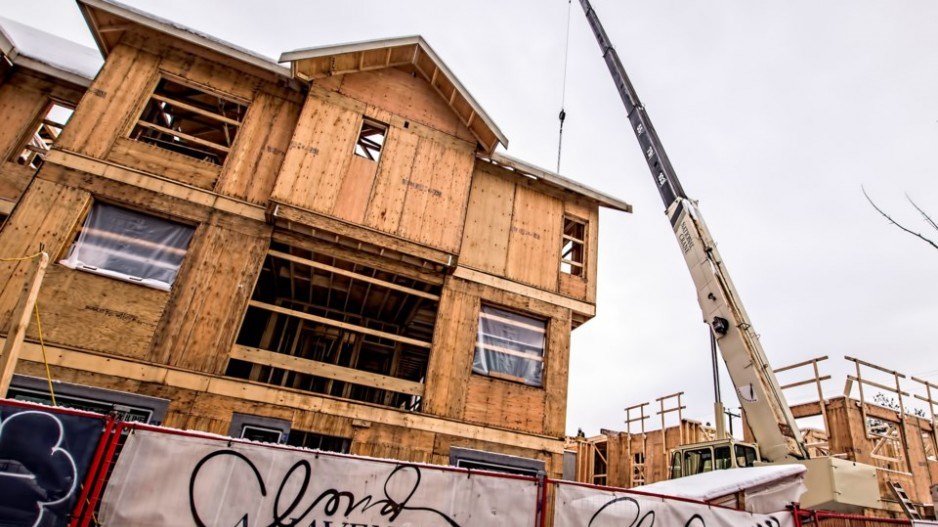In August 2024, housing, homelessness and poverty climbed to the top of the list of concerns for Canadians. What began in the Lower Mainland a decade ago became a preoccupation for people in Atlantic Canada, Ontario and Alberta, particularly among those aged 18 to 34.
As a federal election campaign carries on, Research Co. asked Canadians who they think is more responsible for making housing affordable in their community. The federal government (42 per cent) and the provincial government (41 per cent) are nearly tied, with fewer than one in five Canadians (17 per cent) saying municipal governments should be the main agents of change.
The expectation of federal government involvement is highest in Ontario (44 per cent), Quebec (also 44 per cent) and B.C. (42 per cent).
It’s not surprising to see the three provinces with the most-desired urban centres for newcomers to Canada — Toronto, Montreal and Vancouver — express a larger level of support on this issue.
Almost three in five Canadians (59 per cent) also say the federal government should tie immigration numbers to affordable housing targets and new housing starts.
In 2022, Ottawa banned non-Canadians (with exclusions for international students and temporary residents) from purchasing residential properties in Canada for a two-year period, starting in January 2023. The ban was later extended for two more years and is set to expire in 2027.
More than three in four Canadians (76 per cent) support this decision, while 13 per cent are opposed and 11 per cent are undecided. Majorities across all age groups and provinces endorse the policy. Some may claim that the ban is a form of discrimination, but most Canadians whose origins are South Asian (87 per cent), Indigenous (84 per cent), European (77 per cent) and East Asian (74 per cent) are in favour of it.
The main contending parties in the federal election have announced two policy ideas. Seven in 10 Canadians endorse the proposal from the Liberal Party to create a federal developer that could build low-cost homes on government land (70 per cent) and just under two-thirds (64 per cent) support the Conservative Party’s plan to remove the GST on home sales up to $1.3 million. An idea that was announced by the federal government before Mark Carney took over as Liberal leader from Justin Trudeau is also popular: Developing a catalogue of pre-approved home designs to accelerate homebuilding by developers (70 per cent).
At this point, about half of Canadians trust their municipal government (52 per cent) or provincial government (50 per cent) to deliver affordable housing. Confidence is highest for not-for-profit developers (58 per cent) and lowest for-profit developers (33 per cent, dropping to a Canada-wide low of 28 per cent in B.C.).
Just over half of Canadians (51 per cent) have confidence in the federal government under the Liberals to deliver affordable housing, while 42 per cent feel the same way about a possible Conservative government.
We could assume this result is great for the Liberals, but age brackets tell a compelling story. The Liberals are ahead of the Conservatives on this issue among Canadians aged 55 and over (50 per cent to 34 per cent) and among Canadians aged 35 to 54 (52 per cent to 44 per cent). Among those aged 18 to 34 — the group more likely to be worried about housing right now — the Conservatives are a couple of points ahead (51 per cent to 49 per cent).
The last few days of the campaign will define whether the centre-left vote coalesces around the Liberals to the detriment of the Conservatives, who had a significant advantage in early January before Trudeau stepped down. Young Canadians are seeing something in the Conservative proposals for housing that their older counterparts appear to be oblivious to. This is not the “carbon tax election” that Conservative leader Pierre Poilievre sought to fight last year. Thanks to Donald Trump, it has also not been a purely “housing election,” where the battle over young voters would have been crucial.
Mario Canseco is president of Research Co.
Results are based on an online survey conducted from April 7-9, 2025, among 1,002 adults in Canada. The data has been statistically weighted according to census figures for age, gender and region in Canada. The margin of error is plus or minus 3.1 percentage points, 19 times out of 20.




